
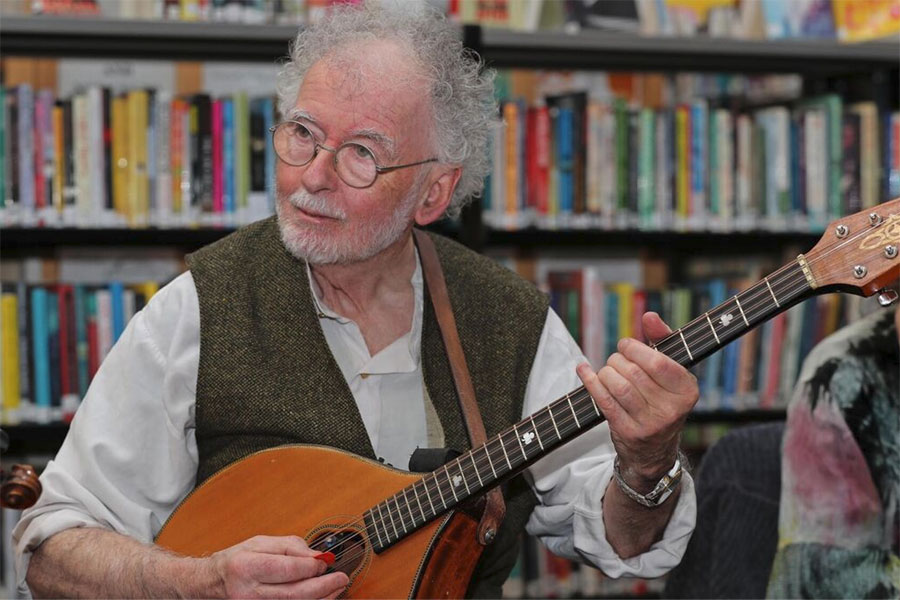
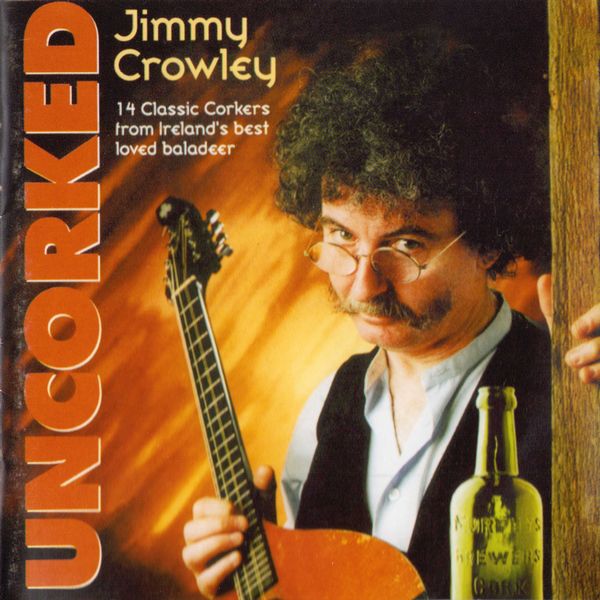 |
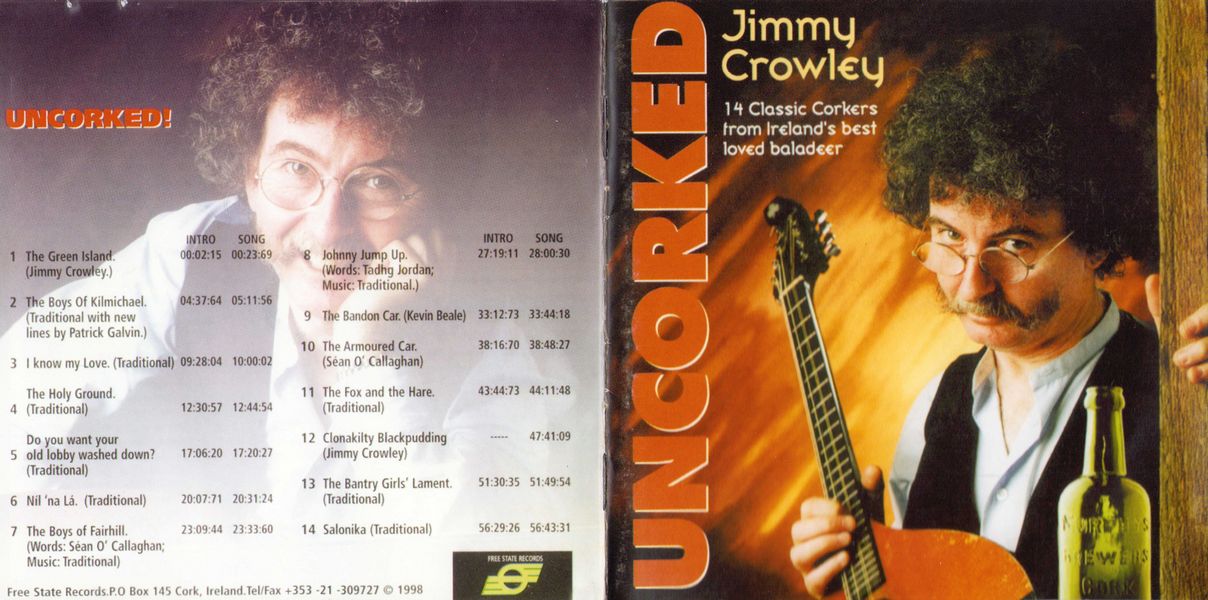
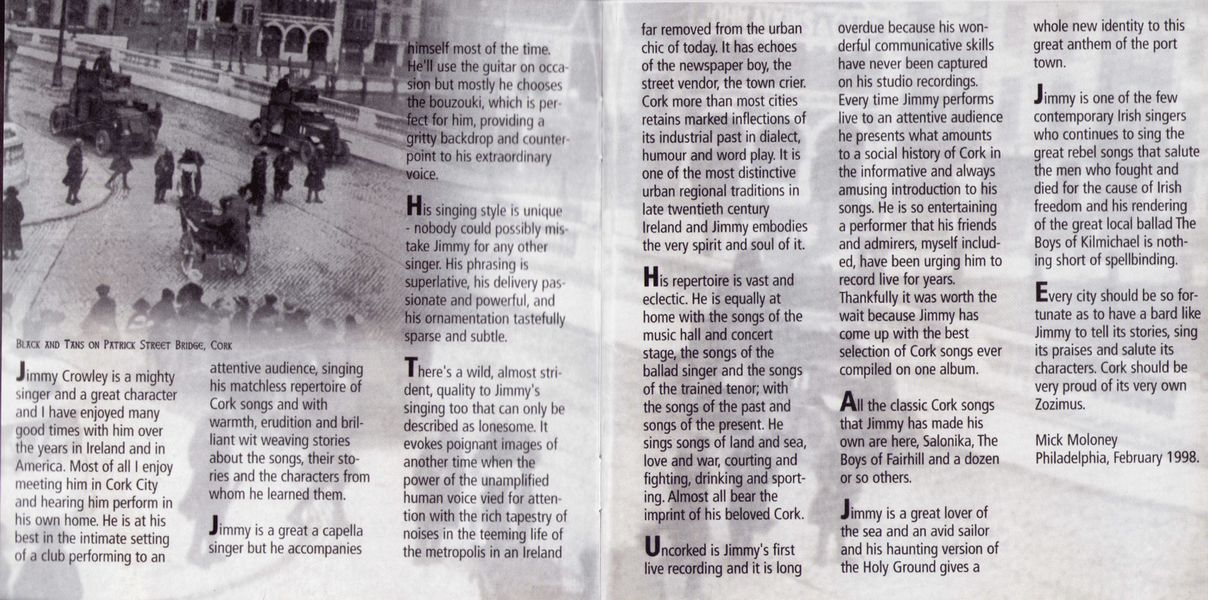
|
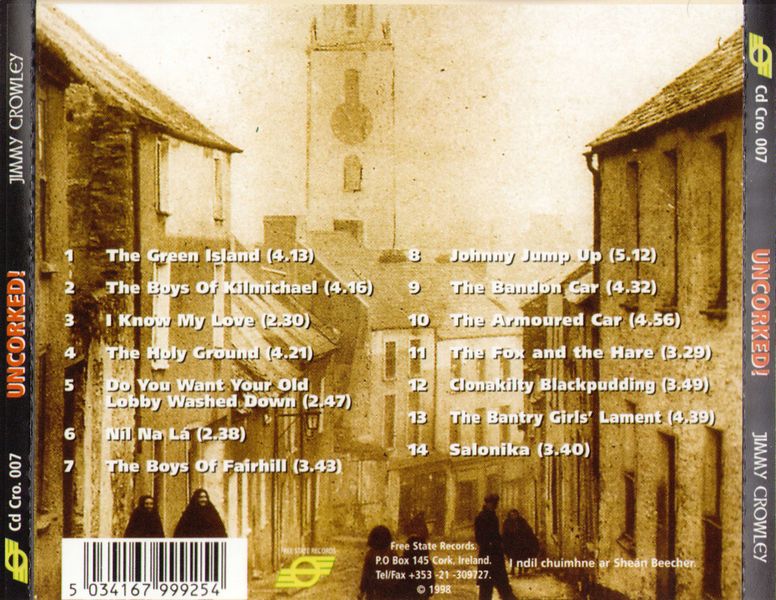
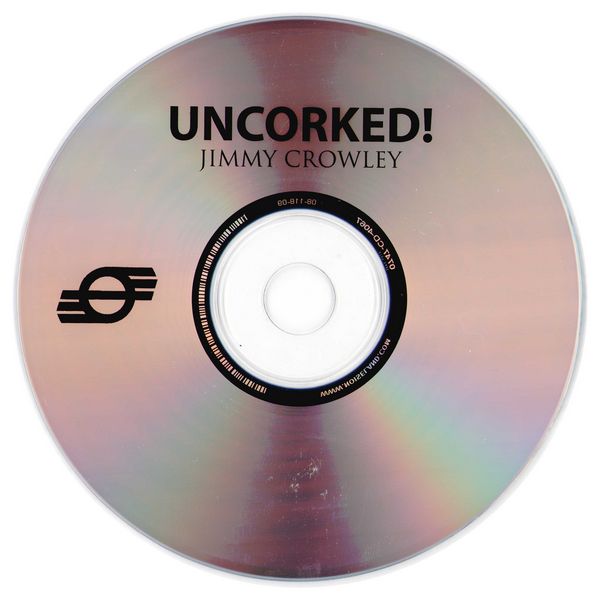
|
| more images |
Buíochas:
Thank you, Mick Moloney for the encouragement; Gerry Miller, for the wonderful title; Dennis McGarry, Tom O'Neill and the Fairhill Harrier Club for the sporting photographs; Stiofán O Cadhla of the Folklore Dept., U.C.C. for the War of Independence photos; Mr. Bill Good of the Royal Munster Fusiliers Association for the First World War poster and to The Examiner for the streetscape.
To Pat Conway and the staff at The Lobby, who couldn't have been nicer to us during the recording, a special thank you.
Finally, thanks to the Canniffe Family, Kevin Beale, Cliff Wedgbury and Vic Merriman whose chorus singing among the audience is irrepressible!
Sleeve Notes
Jimmy Crowley is a mighty singer and a great character and I have enjoyed many good times with him over the years in Ireland and in America. Most of all I enjoy meeting him in Cork City and hearing him perform in his own home. He is at his best in the intimate setting of a club performing to an attentive audience, singing his matchless repertoire of Cork songs and with warmth, erudition and brilliant wit weaving stories about the songs, their stories and the characters from whom he learned them.
Jimmy is a great a capella singer but he accompanies himself most of the time. He'll use the guitar on occasion but mostly he chooses bouzouki, which is perfect for him, providing a gritty backdrop and counter-point to his extraordinary voice. His singing style is unique nobody could possibly mistake Jimmy for any other singer. His phrasing is superlative, his delivery passionate and powerful, and his ornamentation tastefully sparse and subtle.
There's a wild, almost strident, quality to Jimmy's singing too that can only be described as lonesome. It evokes poignant images of another time when the power of the unamplified human voice vied for attention with the rich tapestry of noises in the teeming life of the metropolis in an Ireland far removed from the urban chic of today. It has echoes of the newspaper boy, the street vendor, the town crier. Cork more than most cities retains marked inflections of its industrial past in dialect, humour and word play. It is one of the most distinctive urban regional traditions in late twentieth century Ireland and Jimmy embodies the very spirit and soul of it.
His repertoire is vast and eclectic. He is equally at home with the songs of the music hall and concert stage, the songs of the ballad singer and the songs of the trained tenor; with the songs of the past and songs of the present. He sings songs of land and sea, love and war, courting and fighting, drinking and sporting. Almost all bear the imprint of his beloved Cork.
Uncorked is Jimmy's first live recording and it is long overdue because his wonderful communicative skills have never been captured on his studio recordings. Every time Jimmy performs live to an attentive audience he presents what amounts to a social history of Cork in the informative and always amusing introduction to his songs. He is so entertaining a performer that his friends and admirers, myself included, have been urging him to record live for years. Thankfully it was worth the wait because Jimmy has come up with the best selection of Cork songs ever compiled on one album.
All the classic Cork songs that Jimmy has made his own are here, Salonika, The Boys of Fairhill and a dozen or so others.
Jimmy is a great lover of the sea and an avid sailor and his haunting version of the Holy Ground gives a whole new identity to this great anthem of the port town.
Jimmy is one of the few contemporary Irish singers who continues to sing the great rebel songs that salute the men who fought and died for the cause of Irish freedom and his rendering of the great local ballad The Boys of Kilmichael is nothing short of spellbinding.
Every city should be so fortunate as to have a bard like Jimmy to tell its stories, sing its praises and salute its characters. Cork should be very proud of its very own Zozimus.
Mick Moloney
Philadelphia, February 1998.
The Green Island — I wrote this emigration song in New York in the early eighties as tens of thousands of well educated young Irish people headed for America in search of work.
The antipathy of the Irish government squeezed the song out of me.
The Boys Of Kilmichael — Songs from the War of Independence have become so frowned upon in post-modern Ireland that young people are being denied any recourse to national pride, landscape legends or any form of heroism, all very necessary components of the Irish psyche. For all those reasons, I asked the Cork poet Patrick Galvin to write an extra verse and dispatch a broadside in the direction of the historical revisionists.
I Know My Love — Contains the classic jealous lover motif only this time the "tavern in the town" becomes St Francis' Hall in the Mardyke, Cork which for many years was centre of the social scene and whence many's a "shift" preceded matrimony Learned from Luke Kelly of the Dubliners.
The Holy ground — I always felt the 'full-steam-ahead' version lost some of the pathos. The Holy Ground itself ties to the east of the sea-port town of Cobh, Co. Cork and held many houses of ill-repute which helped to satiate the frustrations of love-lorn sailors.
Do You Want Your Old Lobby Washed Down, Con Shine? — Its time I put on record a truthful representation of the altercation between myself and Brendan Shine regarding this song. I was on tour in England and had been playing a test pressing of my new single when a very animated Shine entered the room of the Birmingham lodging house. Having waxed eloquent in his praise of both myself and the song, in a friendly gesture, I offered him a copy for which he insisted in giving me a pound, for reasons best known to himself. I judged him as I judged troubadours of my own folk fraternity, in that the unwritten law against poaching another artist's material transcended all musical denominations. Judge then of my chagrin when I heard his recording of it soon after.
Learned from "the singing fireman", John O' Shea, of Cork city.
Níl Na Lá — Most of us learned the Connemara version of this night-visiting song at school and I have heard at least two lovely Ulster versions. I was delighted when I heard Diarmauid O Suilleabhain of Cuil Aodha, Co. Cork sing this wonderful Munster version and I remember him fondly every time I sing it.
The Boys Of Fairhill — I have purposely scuttled the more recent vulgar verses and have returned to the original lyric which I collected in 1976 from Hadda O' Callaghan of Blackpool, Cork, brother of the author Seán. Its seems less a city song here and more a pastourelle. Not surprisingly, as almost all of Cork's Northside was then open country and famous for the singing of its larks.
Johnny Jump Up — During the Hitler war, rations and restrictions were an everyday event In the best spirit of recycling, Bulmers of Clonmel stowed a new run of cider in old wooden whiskey barrels not realising that a delicious intercourse between the fresh young cider and the slumbering spirit would ensue. This the original version given to me by the author, Tadhg Jordan of Cork. Another story goes that Tadhg wrote the song to secure the threatened job of a friend who worked for the famous brewery. Sales soared evidently after the success of the song and subsequently the post was saved!
The Bandon Car — The best songs are born out of frustration and this a classic example. I have heard people in West Cork say that they'd rather face a platoon of Black and Tans or the Headless Coach than the dreaded Bandon squadcar, which, like the Banshee herself, has acquired the secret of bi-location.
The Armoured Car — Draghunting is a very popular sport around Cork city. A scent is laid over a cross-country course of about ten miles and the harriers or beagles are released in a pack. The first dog home is the winner. One of the most famous was Ringwood, owned by Connie Doyle of the Fairhill Harriers. The great ballad maker, Seán O'Callaghan bestowed upon Ringwood his immortal nom de guerre. I first learned the song from Chris Twomey, concertina player with my earlier band, Stokers Lodge and some additional verses from Seán's brother, Hadda O'Callaghan.
The Fox And The Hare — On first hearing it sounds harmless enough. Closer study discovers misogyny and murder most airy! John O' Connell from Baile Mhuirne, Co. Cork gave me the song, originally an English folk song and published in The Oxford Book of Traditional Verse.
Clonakilty Blackpudding — Ballad makers were traditionally commissioned to sing and compose the praises of their patron's wares. Throughout the Middle Irish period, the Fill sustained themselves by eulogising the Irish aristocracy. So, things haven't changed that much and I'm glad that my patron, Mr. Edward Twomey, has a good sense of the tradition.
The Bantay Girls' Lament — Learned from Tim Lyons of Clare. I mistook the locale for years and didn't realise that there was another Bantry, in North Co. Wexford, where this love song from the Penninsular War comes from.
Salonika — From the female perspective, this political song from the First World War weighs the fortunes of the "Separa women" who received separation pay from the British government and the "Slacker women" a pejorative term for those who, for nationalist reasons, refused to join the war effort. I learned most of the verses from Mrs. Helena Ronayne, grandmother of Mick Murphy of Stokers Lodge.